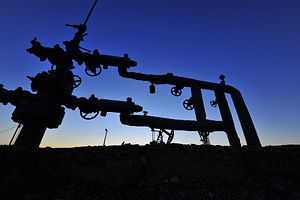With Eurasian economic troubles showing no signs of abating, the government in Turkmenistan is casting about for public proclamations of plans to stanch the slowdown. Turkmen President Gurbanguly Berdymukhamedov has begun shuffling members of his administration and, a few weeks ago, publicly castigated a senior Cabinet official. That official is now reportedly jailed. In an administration as opaque as Berdymukhamedov’s, the moves appear a mix of the symbolic and the superficial, doing little to reorient the country’s economic focus away from bottomed-out hydrocarbons. Instead of pushing for already too-late economic diversification, Ashgabat has doubled down on the existing hydrocarbon projects at hand — no matter how far-fetched they remain.
To wit, earlier this week the state paper, according to Trend, reported that “topographic, engineering, and survey works have been completed for the construction” of the Turkmenistan-Afghanistan-Pakistan-India (TAPI) pipeline. As Trend continued, “This will allow choosing an optimal route for TAPI and defining the properties of the pipes to be used to transport the natural gas.”
And that may well be. Berdymukhamedov certainly appears to think so: In light of the news about TAPI, the president ordered an increase in the country’s natural gas production, and urged his Cabinet to “constantly control” the construction of TAPI — although the precise meaning of such a demand is unclear. Regardless, the news, timed with the Cabinet reshuffle, certainly illustrates how much stock Turkmenistan is continuing to put into TAPI, all the more as Iranian gas inches closer to export to regional markets.
It’s also worth noting a bit of information that went under the radar toward the end of 2015, which may buoy Berdymukhamedov’s outlook. According to the Kremlin-funded Russia Beyond the Headlines, “India has proposed to import up to 30 billion cubic meters of gas a year from Russia either via swap with Iran or through the Turkmenistan-Afghanistan-Pakistan-India (TAPI) pipeline, Russian Deputy Energy Minister Yury Sentyurin told Interfax.” Ashgabat has thus far shown little interest in exploring the option of allowing Moscow to use TAPI — all the more given Turkmenistan’s gas history with Russia — but, if nothing else, external interests around TAPI remains.
However, the surveying — like the pipeline’s “groundbreaking” last December — does little to quell the largest concerns facing the project. Security in northern Afghanistan, and especially along the Turkmen-Afghan border, remains a massive wild card. And while Turkmenistan declined Russia’s aid in beefing up border security, that move doesn’t necessarily offer as much confidence about the current state of affairs in the region as Ashgabat may have wanted.
Much like Berdymukhamedov’s Cabinet shuffles, the recent announcement on TAPI surveying seems more oriented toward action for action’s sake, rather than anything that should boost confidence in TAPI’s final construction. Berdymukhamedov may attempt to direct the pipeline construction however he can, but without any further diversification, he’s going to remain one of the post-Soviet leaders that first comes to mind when discussing potential recession-induced regime change.

































